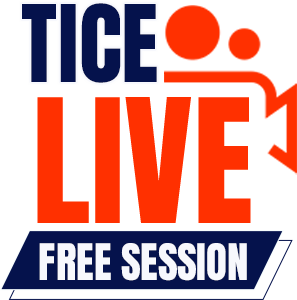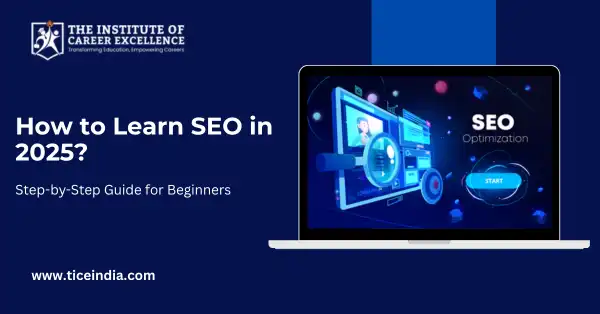
Posted On: August 19, 2025
How to Learn SEO in 2025: Step-by-Step Guide for Beginners
You've just launched your dream website or started a new business, but despite your best efforts, there's barely any traffic. No visitors, no leads, no sales. Sound familiar? I've been there, and so have thousands of entrepreneurs and professionals who later discovered the game-changing power of SEO. Whether you're looking to drive traffic to your blog, pivot to a digital marketing career, or simply understand why your website isn't getting found, this comprehensive guide will show you exactly how to learn SEO from scratch.
The good news? SEO isn't rocket science, despite what all those technical terms might suggest. With the right roadmap and consistent effort, anyone can master the fundamentals and start seeing real results.
What is SEO?
Search Engine Optimization (SEO) is the practice of improving your website's visibility in search engine results pages (SERPs) to attract more organic (non-paid) traffic. At its core, SEO helps search engines understand what your website offers and determines how relevant it is to users' search queries.
SEO serves three main purposes for your online presence:
- Products you sell: Helping potential customers find your offerings
- Services you offer: Connecting service providers with those in need
- Information/expertise topics: Establishing authority in your niche
The connection between visibility and business success is undeniable. Organic search drives 53% of all website traffic, making it the most significant source of visitors for most websites.
Why Learn SEO?
Career & Business Benefits
Learning SEO opens numerous opportunities:
- Build a growing career: The median salary for an SEO specialist is around $69.8k per year.
- Start your own agency: High demand for SEO services creates business opportunities.
- Drive traffic to blogs/websites: Organic traffic is free and sustainable.
- Help businesses grow: Every company needs online visibility.
- Learn broader digital marketing skills: SEO complements other marketing channels.
- Effective marketing method: Long-term results with compounding benefits
Importance for Business Growth
Think of your website as a destination and search engines as the roads leading to it. Without proper SEO, you're essentially hiding your destination from potential visitors. On average, organic search produces 33% of overall website traffic across key industries.
For example, if you're selling headphones online, SEO helps you appear when someone searches for "best wireless headphones 2025" or "noise-canceling headphones under $200." This targeted traffic is incredibly valuable because these searchers have a clear intent to buy.
The authority and relevance benefits extend beyond immediate sales—they establish your brand as a trusted resource in your industry.
How to Learn SEO? Step-by-Step Guide
Step 1: Understand the Basics of SEO
a) Know What SEO Is and Why It's Important
SEO involves optimizing various elements of your website to help search engines understand and rank your content. The stakes are high: 70% of clicks go to the top 5 organic search results, meaning if you're not on the first page, you're missing out on the majority of potential traffic.
b) Learn How Search Engines Work
Search engines follow a three-step process:
- Crawling: Automated bots (called spiders) discover and scan web pages.
- Indexing: Search engines organize and store the information they've found.
- Ranking: Algorithms determine which pages to show for specific searches.
Understanding this process helps you optimize for each stage, ensuring your content gets discovered, indexed, and ranked appropriately.
c) Understand SEO Ranking Factors
Text relevance remains the primary ranking factor—search engines want to show users the most relevant content for their queries. Additional crucial factors include:
- Page loading speed: User experience is paramount.
- Backlinks from other websites: External validation of your content's quality
- HTTPS security protocol: Trust and security signals
d) Know the SEO Types
Main Types:
- On-page SEO: Optimizing individual pages (title tags, meta descriptions, content quality, internal linking)
- Off-page SEO: Building authority through external signals (backlinks, social signals, brand mentions)
- Technical SEO: Improving website infrastructure (site speed, mobile-friendliness, crawlability)
Content-Specific SEO:
- Image SEO: Optimizing visual content for search
- Video SEO: Search results with videos drive 157% more organic traffic.
Business-Specific SEO:
- Local SEO: Nearly half of Google searches are looking for local businesses or services
- International SEO: Multi-language and multi-region optimization
- E-commerce SEO: Product page optimization
- SaaS SEO: Software-as-a-Service-specific strategies
- Small business SEO: Resource-efficient optimization
- B2B SEO: Business-to-business-focused strategies
Step 2: Know the Role of SEO in Digital Marketing
SEO is a crucial component of Search Engine Marketing (SEM), which also includes paid advertising. Unlike pay-per-click ads, SEO provides long-term, sustainable traffic without ongoing ad spending. Other digital marketing channels like social media, email marketing, and content marketing work synergistically with SEO to create a comprehensive online presence.
Step 3: Learn About Keywords and Keyword Research
Keyword types are the foundation of SEO success. These are the terms and phrases people type into search engines when looking for information, products, or services. Effective keyword research helps you understand:
- What your audience is searching for
- How competitive certain terms are
- What content gaps exist in your niche?
69% of all search traffic now comes from long-tail keywords, making keyword research essential for capturing diverse search intent.
Step 4: Learn How to Measure SEO Performance
Success in SEO requires consistent measurement and adjustment. Two essential tools for tracking performance are
Google Search Console: Shows how your website appears in search results, which keywords drive traffic, and technical issues affecting performance.
Google Analytics: Reveals how visitors interact with your site, where your traffic comes from, and tracks goal completions and sales.
Key metrics to monitor include organic traffic growth, keyword rankings, click-through rates, and conversion rates from organic visitors.
Step 5: Study Your Competitors
Competitor analysis reveals valuable opportunities by showing:
- New keywords your competitors rank for that you don't
- Backlink sources you can potentially target
- Content gaps in your industry
- New opportunities for differentiation
This intelligence helps you develop more effective SEO strategies and identify untapped market segments.
Step 6: Put SEO to Work
Theory without practice is worthless. Start by creating a blog or optimizing existing content. Begin with topics you're passionate about and gradually implement SEO career path strategies as you learn. Focus on creating valuable content that genuinely helps your audience—search engines reward helpful, comprehensive content.
Consider developing action plans and checklists to systematize your approach, and don't hesitate to revisit guides as you gain more experience.
Step 7: Get a Working Understanding of SEO Tools
Professional SEO tools streamline research and analysis by providing:
- Keyword research data and suggestions
- Backlink analysis and monitoring
- Site audits to identify technical issues
- Analytics investigation for performance tracking
- Content gap identification for opportunity discovery
Top recommended tools include Google Search Console, Google Analytics, Ahrefs, SEMrush, and Moz. Start with free tools and gradually invest in premium options as your skills and needs grow.
Step 8: Expand Your Knowledge of SEO
While self-learning is possible, structured education accelerates your progress. Consider enrolling in a comprehensive digital marketing course in Kolkata or finding a reputable digital marketing institute in Kolkata that offers hands-on SEO training.
Quality courses typically cover:
- Advanced keyword research techniques
- Technical SEO implementation
- Link building strategies
- Local SEO optimization
- SEO analytics and reporting
Look for programs offering certifications from recognized organizations, as these credentials can enhance your professional credibility.
Step 9: Stay Updated on the Latest SEO Advances
SEO evolves continuously as search engines update their algorithms and user behavior changes. Around 75% of SEO professionals read 1-5 SEO-related blogs per week to stay updated.
Stay current through:
- SEO podcasts for insights from industry experts
- SEO blogs from authoritative sources like Search Engine Journal and Moz
- Community engagement in SEO forums and social media groups
- Continuous learning through webinars and conferences
The key is developing a learning routine that keeps you informed without overwhelming you.
Frequently Asked Questions
Can I learn SEO by myself?
Absolutely! Many successful SEO professionals are self-taught. However, structured learning through courses or mentorship can accelerate your progress and help you avoid common mistakes.
What are the 4 types of SEO?
The four main types are on-page SEO (optimizing individual pages), off-page SEO (building external authority), technical SEO (improving website infrastructure), and local SEO (optimizing for geographic searches).
Is SEO difficult to learn?
SEO has a learning curve, but it's not insurmountably difficult. The basics can be learned in a few weeks, while mastering advanced techniques takes months to years of consistent practice. The key is starting with fundamentals and building complexity gradually.
Conclusion
Learning SEO in 2025 offers tremendous opportunities for career growth and business success. With organic search driving the majority of website traffic and SEO skills in high demand, there's never been a better time to start your SEO journey.
The resources and strategies outlined in this guide provide a solid foundation, but remember that SEO mastery comes through consistent practice and staying updated with industry changes. Whether you choose self-directed learning or enrol in a structured digital marketing course in Kolkata, the key is taking that first step and committing to continuous improvement.
Ready to transform your digital presence? Start implementing these strategies today and watch your online visibility grow. For those seeking comprehensive training and personalized guidance, consider exploring professional SEO courses that can fast-track your learning journey.
Tags
Latest Posts
-

10 Highest-Paid Digital Marketing Skills in Demand in 2026
-
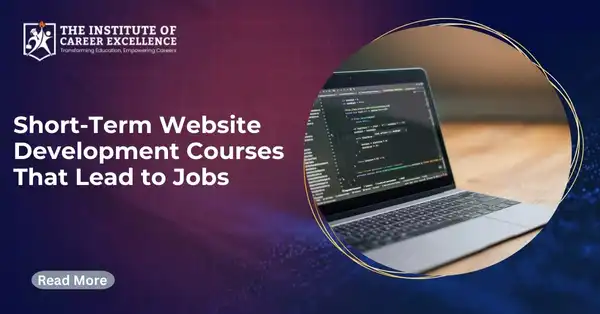
Short-Term Website Development Courses That Lead to Jobs
-
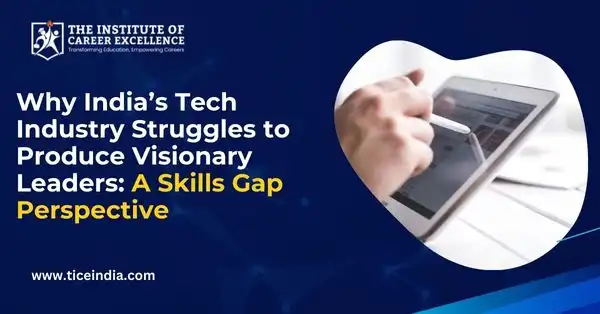
Why India’s Tech Industry Struggles to Produce Visionary Leaders: A Skills Gap Perspective
-
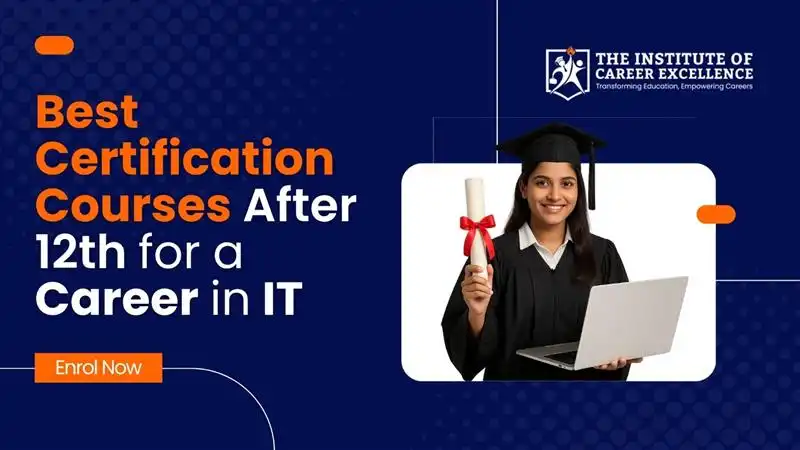
Best Certification Courses After 12th for a Career in IT
-
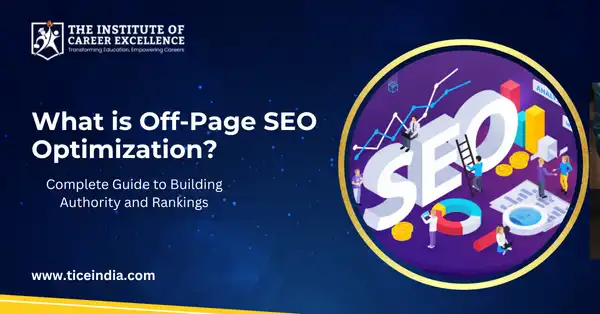
What is Off-Page SEO Optimization? Complete Guide to Building Authority and Rankings
Similar Posts
-

10 Highest-Paid Digital Marketing Skills in Demand in 2026
-

Short-Term Website Development Courses That Lead to Jobs
-

Why India’s Tech Industry Struggles to Produce Visionary Leaders: A Skills Gap Perspective
-

What is Off-Page SEO Optimization? Complete Guide to Building Authority and Rankings
-
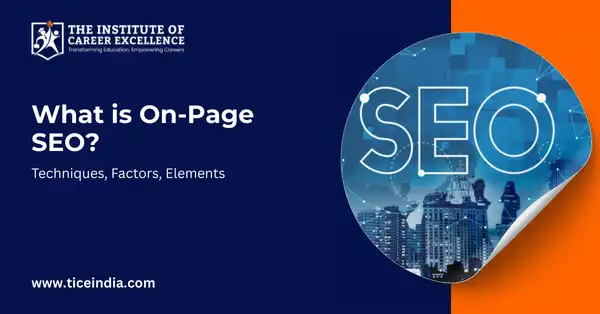
What is On-Page SEO? Techniques, Factors, Elements



